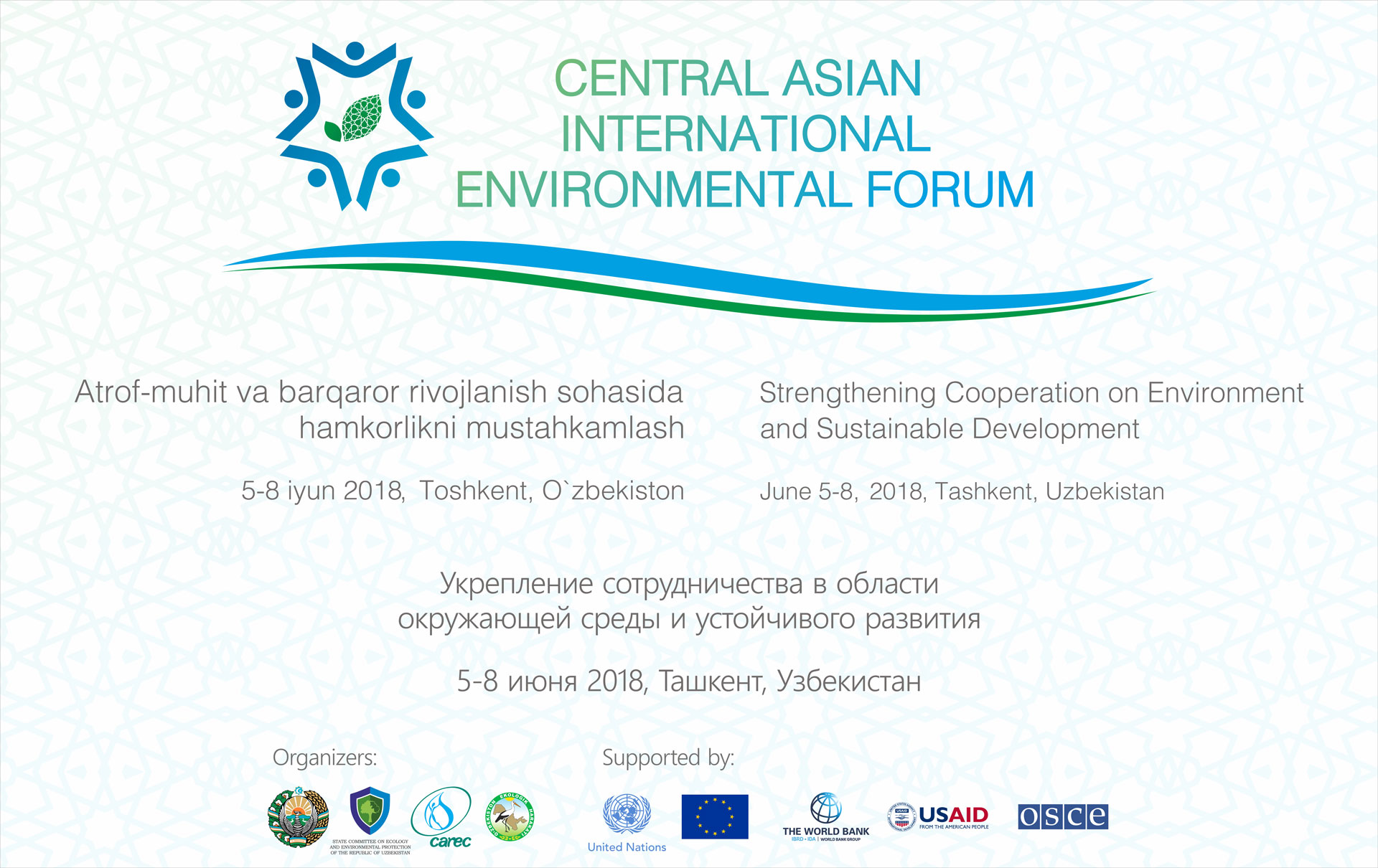
CAREC prepared a series of articles on the thematic areas of the Central Asian International Environmental Forum 2018: renewable energy sources and energy efficiency; integrated management of solid domestic waste; Conservation of biodiversity and development of a network of protected natural areas; water cooperation.
The content of the thematic segment "Renewable energy sources and energy efficiency" is supervised by the CAREC programme "Climate change and sustainable energy" and is sponsored by the World Bank project "Climate Adaptation and Mitigation Program in the Aral Sea Basin" (CAMP4ASB). Specialist of CAMP4ASB project, Atabek Umirbekov, spoke in detail about what awaits the participants of the forum at the parallel sessions devoted to renewable energy and energy efficiency.
Today, when we talk about energy in Central Asia as a whole, one of the key issues is energy efficiency and renewable energy. As in many other regions of the world, it has traditionally happened that most of the power generating capacity is based on hydrocarbon fuel, which is unstable from the point of view of ecology and durability. At the same time, Central Asia has quite a lot of opportunities for using renewable energy. That is why, at the forthcoming Central Asian International Environmental Forum, separate parallel sessions are devoted to renewable energy sources and energy efficiency.
According to Atabek Umirbekov, the region has not yet fully disclosed the potential for using hydro resources, which are concentrated in Tajikistan and Kyrgyzstan. Also, the countries have a very high potential for obtaining solar energy: more than 300 days a year are cloudless in the significant territories of Kazakhstan, Uzbekistan and Turkmenistan. All countries in the region also have potential in wind energy.
Speaking about the directions in which it is planned to develop a discussion in the thematic segment "Renewable Energy Sources and Energy Efficiency", Atabek Umirbekov noted that the forum will present the latest initiatives and policies of the Central Asian countries concerning the promotion of renewable energy. Specialist of the CAMP4ASB project stressed: "We also plan to exchange experience in creating institutional and legislative frameworks. It should be recognized that some countries in the region have gone a little further in developing the regulatory framework and creating comfortable conditions for promoting RES and improving energy efficiency in key sectors. I think it will be useful to share this experience among the countries of Central Asia since we have roughly similar technological, institutional and social aspects. "
The countries of Central Asia are at the initial stage of development of RES, therefore, within the framework of the forum, studies and various technical assessments that are being conducted in this field will be presented. "The region has great potential for RES and untapped potential for reducing energy intensity, but there is a need to move from the formation of common agendas to concrete actions. First of all, we need to localize the tasks: how, where, what resources can be used, "said Mr Umirbekov. In his opinion, this process is influenced by such factors as geography, climatic conditions, regional imbalances in the development and demand for electricity, the availability of a local power grid, infrastructure, and others: "In this connection, such technical assessments would greatly assist the decision-makers in the formation of a whole picture. It would show where are the gaps, and where is untapped potential and how this can be advanced at the technical level. "
It is worth to note that the development of the energy sector is a capital-intensive industry and requires the assistance of the International Financial Institutions. In addition, public-private partnership plays an important role in recent years. Therefore, it is important that during the forum the participants will discuss possible ways of attracting private sector funds.
In this regard, Mr Umirbekov mentioned that the share of the private investments in large-scale infrastructure projects is still small and therefore it is necessary to develop tools for attracting investors: "Why large infrastructure projects are realized basically at the expense of the international development banks? Because it is very expensive and has long Payback Period. A small share of private investment indicates that this is not so profitable. Therefore, we have to turn to development funds.”
The attraction of private investors is hampered because in many Central Asian countries the energy industry is heavily monopolized by the state. Therefore, one of the necessary conditions for development is a gradual, reasonable demonopolization of this sector, when the state creates conditions for commercial structures to generate, transfer and distribute electricity, leaving to itself aspects of regulation. An important condition is to maintain profitability and ensure, at the same time, social protection of the population, mainly to prevent a sharp increase in electricity tariffs.
When developing the program of the thematic segment "Renewable Energy Sources and Energy Efficiency", the organizers of the forum proceeded from the assumption that the region will also benefit from studying international experience. Therefore, experts from international organizations were invited, who are actively involved in promoting renewable energy and energy efficiency in the regions of Eastern Europe, the Caucasus, Central Asia and Asia.
In addition, presentations and reviews by representatives of international development banks are envisaged at CAIEF 2018. The World Bank, the Asian Development Bank and others will talk about activities in the field of renewable energy and energy efficiency, as well as the results of the research and technical assessments.
